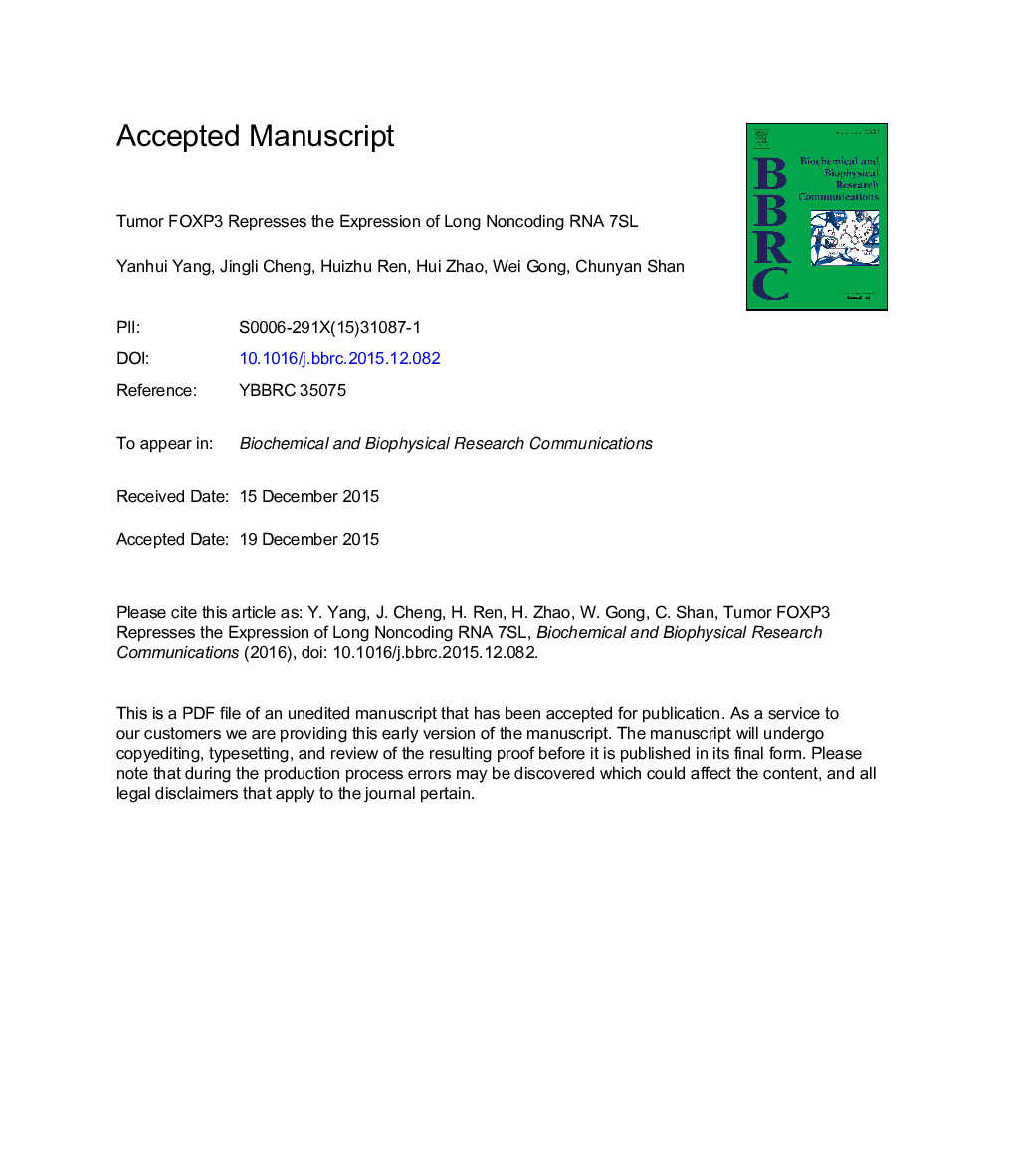| Article ID | Journal | Published Year | Pages | File Type |
|---|---|---|---|---|
| 10748381 | Biochemical and Biophysical Research Communications | 2016 | 20 Pages |
Abstract
The long noncoding RNA 7SL was over-expressed in tumor cells to promote cell growth through repressing translation of P53. However, the regulatory mechanism of 7SL remains to be defined. FOXP3 was identified as a suppressor in several tumors in addition to be a marker of regulatory T cells. In this study, we detected that over-expression of FOXP3 repressed the transcription of 7SL RNA and contributed to inhibiting tumor growth. Knock down of FOXP3 in MCF-10A normal mammary breast cells up-regulated the transcription of 7SL RNA. Chromatin Immuno-precipitation (ChIP) analysis showed that FOXP3 directly bound to the Forkhead/HNF-3 domain DNA binding sites (â789 to â795) relative to the transcription start site. Meanwhile, Luciferase analysis showed that FOXP3 repressed the full-length 7SL promoter activity, but this suppressive effect was reversed after mutation of the FOXP3 binding site. Further studies showed that FOXP3 promoted the expression of P53 at translational levels through repressing 7SL RNA. In conclusion, this study suggests that 7SL RNA is a direct target of FOXP3 and may be involved in the formation of FOXP3/P53 feedback loop.
Keywords
Related Topics
Life Sciences
Biochemistry, Genetics and Molecular Biology
Biochemistry
Authors
Yanhui Yang, Jingli Cheng, Huizhu Ren, Hui Zhao, Wei Gong, Chunyan Shan,
